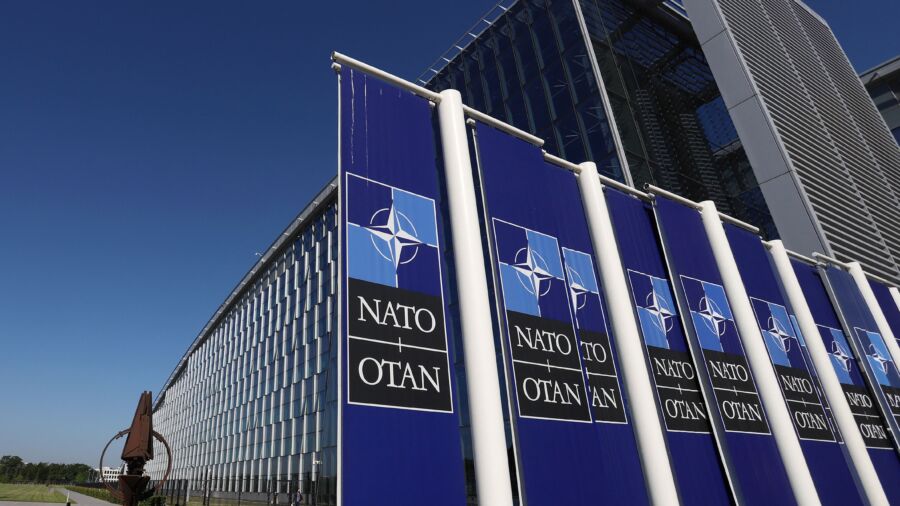The North Atlantic Treaty Organization (NATO) allies have reached a new agreement to shift some of the responsibility for security assistance and training for Ukrainian forces more broadly across the Western alliance.
The United States has, in recent years been the leading NATO member handling security assistance and training for Ukraine’s military, particularly as it contends with a war on its eastern front with Russia. Much of the assistance for Ukraine has been coordinated through the Pentagon-run Ukraine Defense Contact Group (UDCG).
The new agreement, announced by NATO Secretary-General Jens Stoltenberg on Friday, would establish a new Ukraine aid coordinating center in Wiesbaden, Germany. The new plan doesn’t close out the Pentagon-led UDCG, but instead works as a compliment to the existing Pentagon-led coordinating office.
This new coordinating office will still be housed at a U.S. military base, but will be staffed by around 700 personnel from across the NATO alliance and other nations backing Ukraine. The office will also oversee several logistical nodes along the eastern edge of the alliance.
The new NATO coordinating office will be placed under the responsibility of NATO’s Allied Command Operations (ACO), led by NATO’s Supreme Allied Commander Europe (SACEUR). SACEUR has historically been a position held by a U.S. general and U.S. Army Gen. Christopher G. Cavoli currently holds that office, while also leading the U.S. European Command (EUCOM)
Mr. Stoltenberg said that by putting NATO in the lead coordinating role for Ukraine assistance “we are ensuring that the support is more robust, more coherent.” He said the new arrangement will also improve interoperability between NATO and Ukrainian forces and help to “reconcile the short-term and the long-term needs” of Ukraine’s military forces.
US Political Rift Over Ukraine Aid
The new NATO agreement comes as numerous congressional Republicans have signaled opposition to new rounds of Ukraine-related aid. And former President Donald Trump—the GOP’s presumptive presidential nominee—has repeatedly suggested he would prefer to quickly negotiate a settlement to end the ongoing Russia–Ukraine conflict if he regained the White House. More recently the former president said he’d prefer to see continued U.S. aid for Ukraine be structured in the form of a loan.
President Biden apologized to Ukrainian President Volodymyr Zelenskyy last week, for a drawn-out debate within Congress about whether or not to pass a $95 billion foreign aid package that included around $61 billion in new Ukraine-related aid. The aid package was complicated by disagreements between Republicans and Democrats over assistance for Ukraine and Israel, along with calls for new U.S. border security spending and policy reforms.
President Biden and Mr. Zelenskyy, on June 13, also signed a 10-year bilateral security agreement signifying a continuing U.S. commitment to support the war-torn country against Russian aggression. The agreement outlines areas of continued security cooperation between the United States and Ukraine but doesn’t list any new specific U.S. financial commitments to Ukraine and states at the end that it does not constitute a binding legal obligation.
This week, the leaders of the Group of Seven (G7) nations—the United States, Canada, France, Germany, Italy, Japan, and the United Kingdom—reached a deal to utilize around $50 billion in frozen Russian assets as collateral for an additional loan to support Ukraine.
Separately, Mr. Stoltenberg has also called for NATO’s members to collectively contribute at least $40 billion each year to sustain support for Ukraine. The NATO official said this week that his proposal will also mitigate issues with some alliance members who have pledged new rounds of support for Ukraine but failed to make good on those commitments.
Reuters and The Associated Press contributed to this article.

